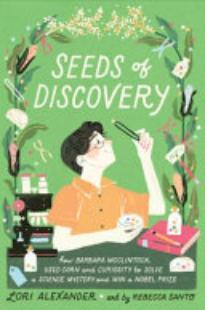2018 School Spending Survey Report

 Alexander, Lori
Alexander, Lori
Seeds of Discovery: How Barbara McClintock Used Corn and Curiosity to Solve a Science Mystery and Win a Nobel Prize
We are currently offering this content for free. Sign up now to activate your personal profile, where you can save articles for future viewing.




